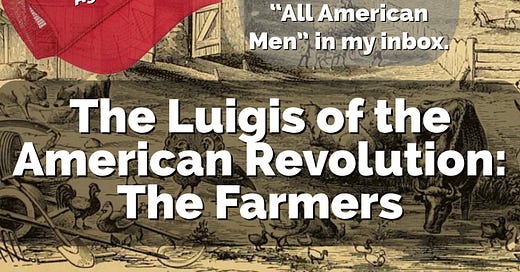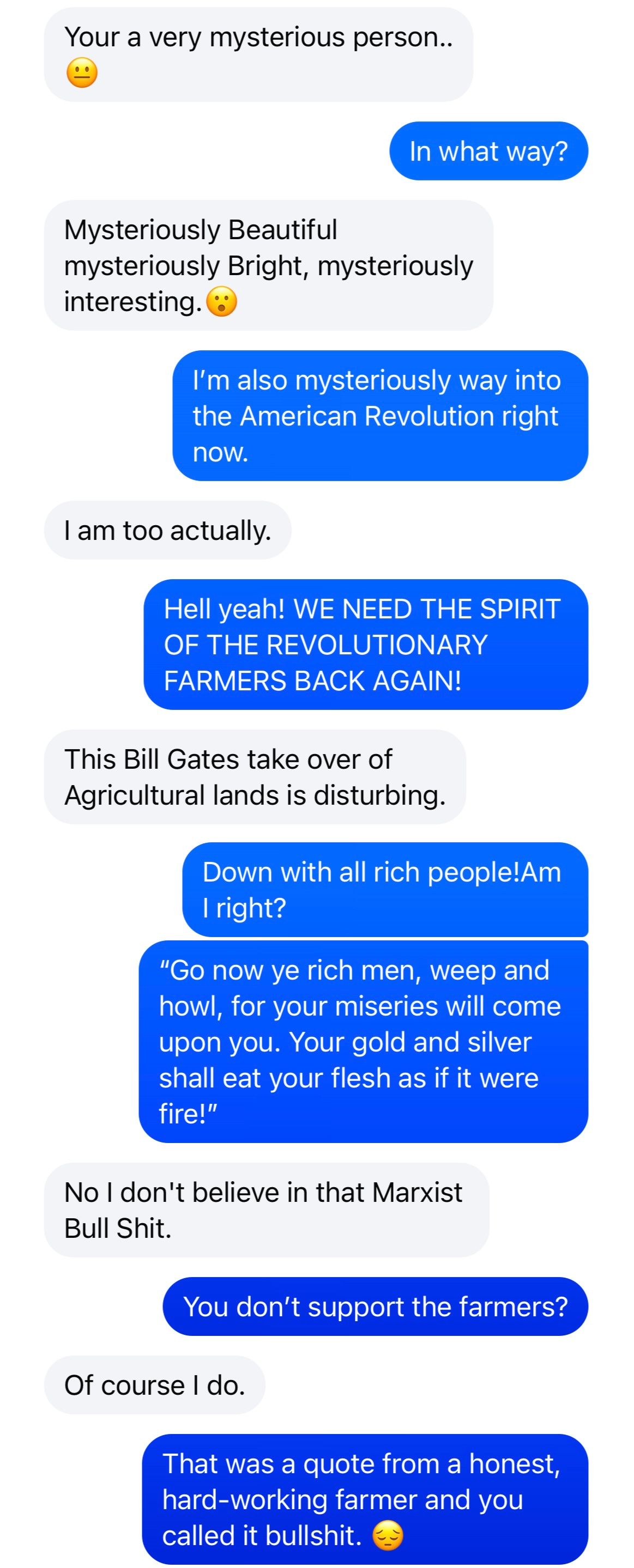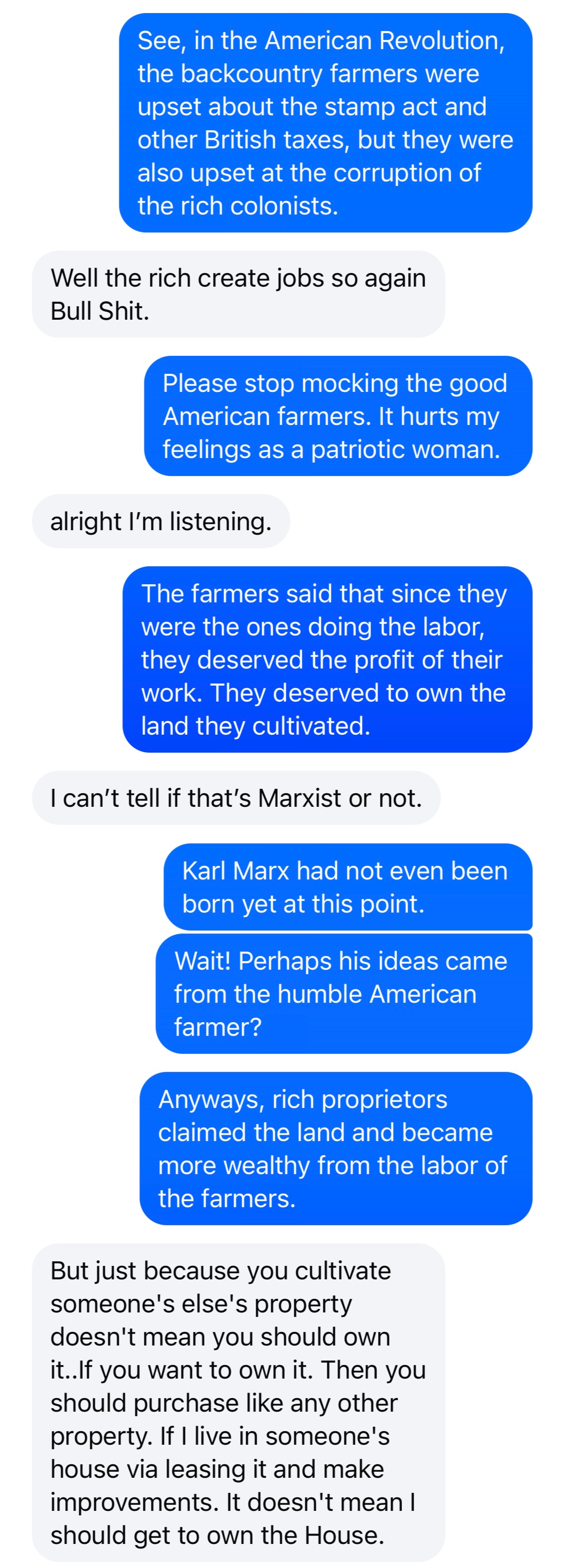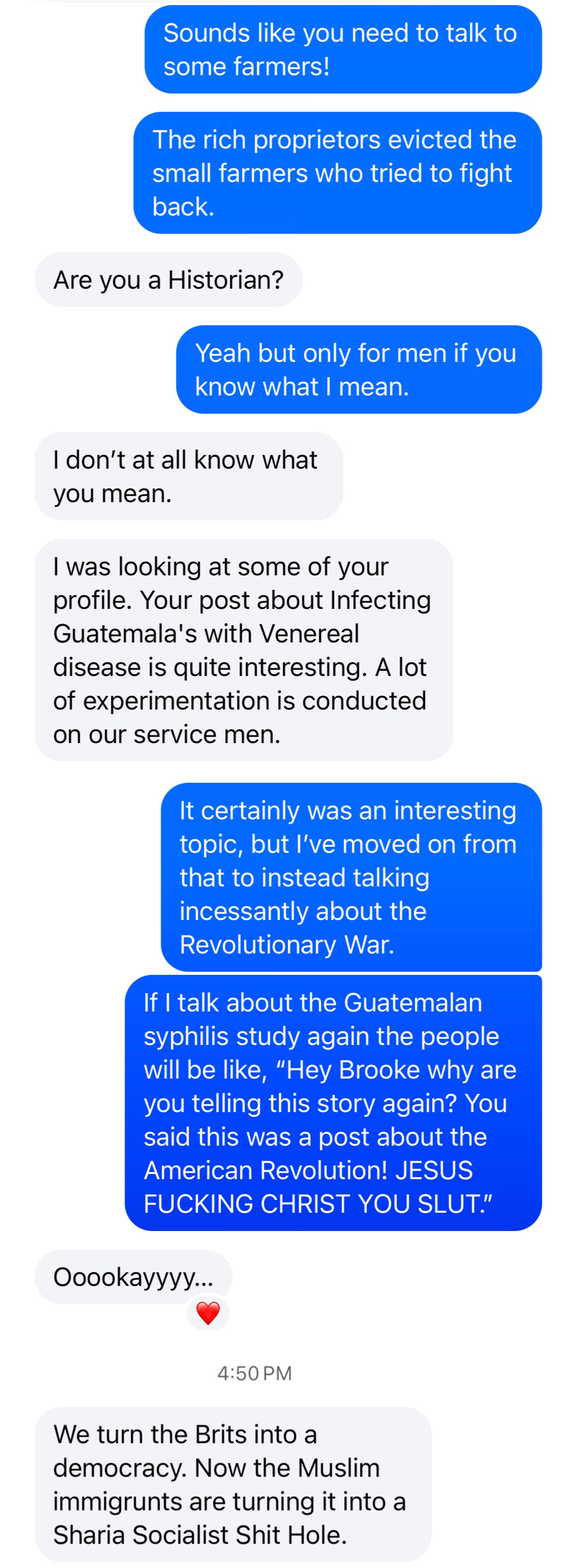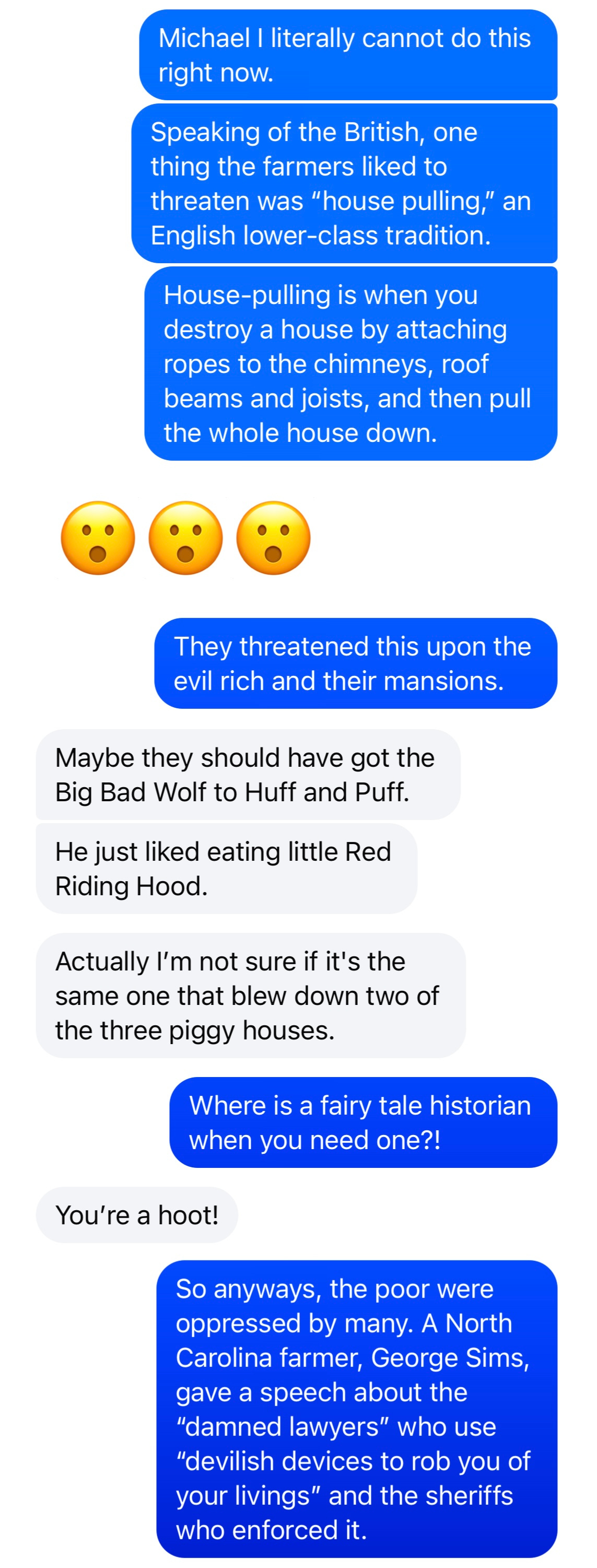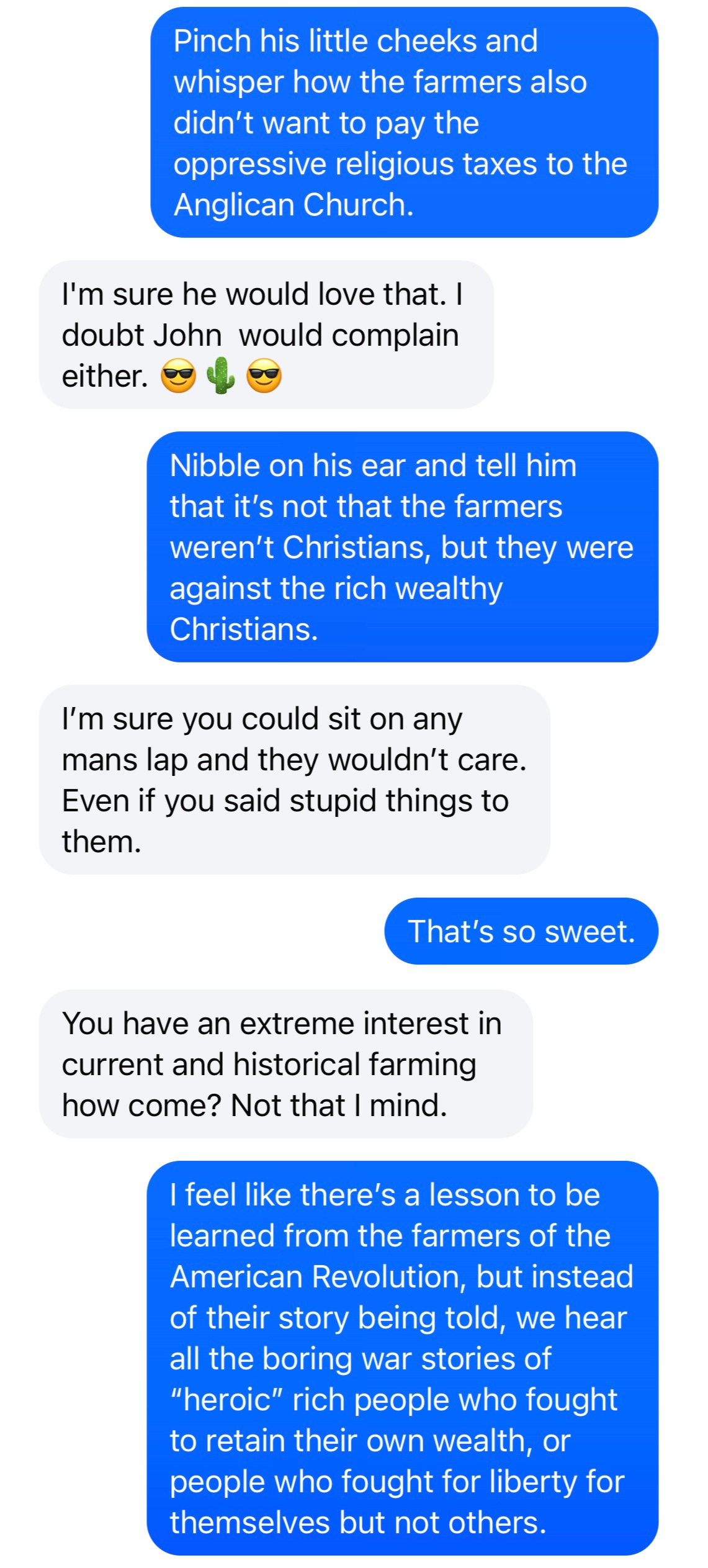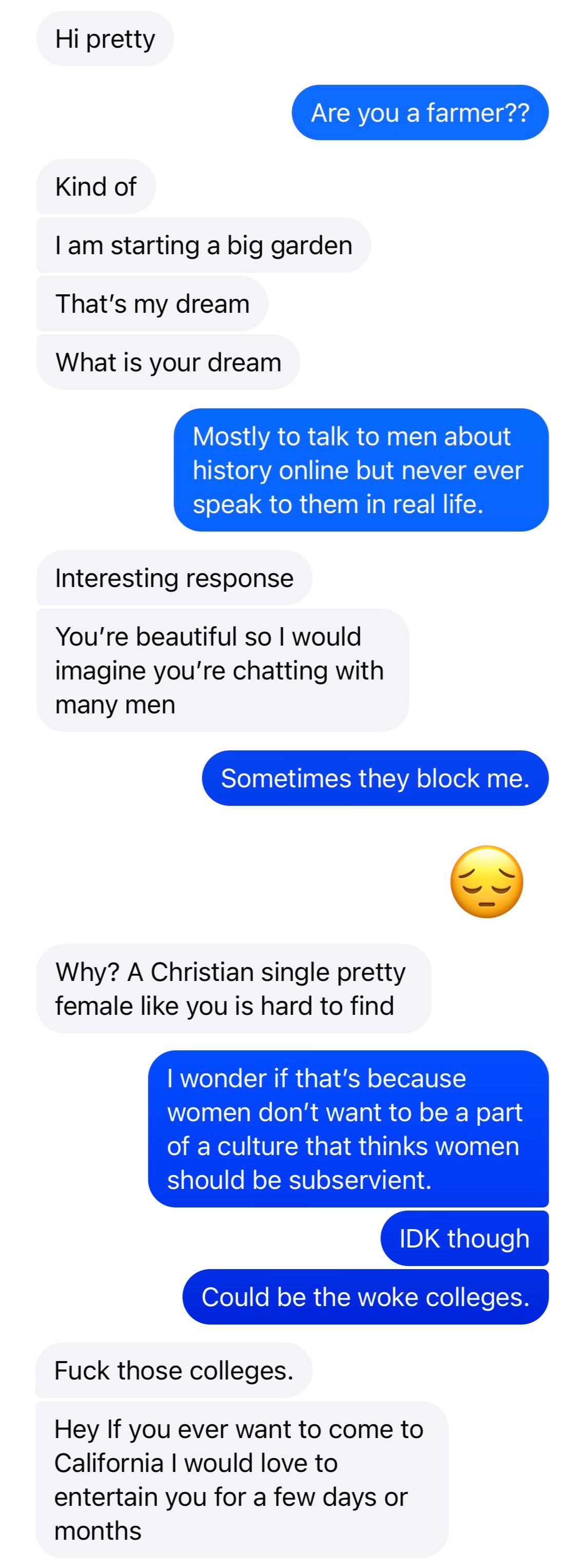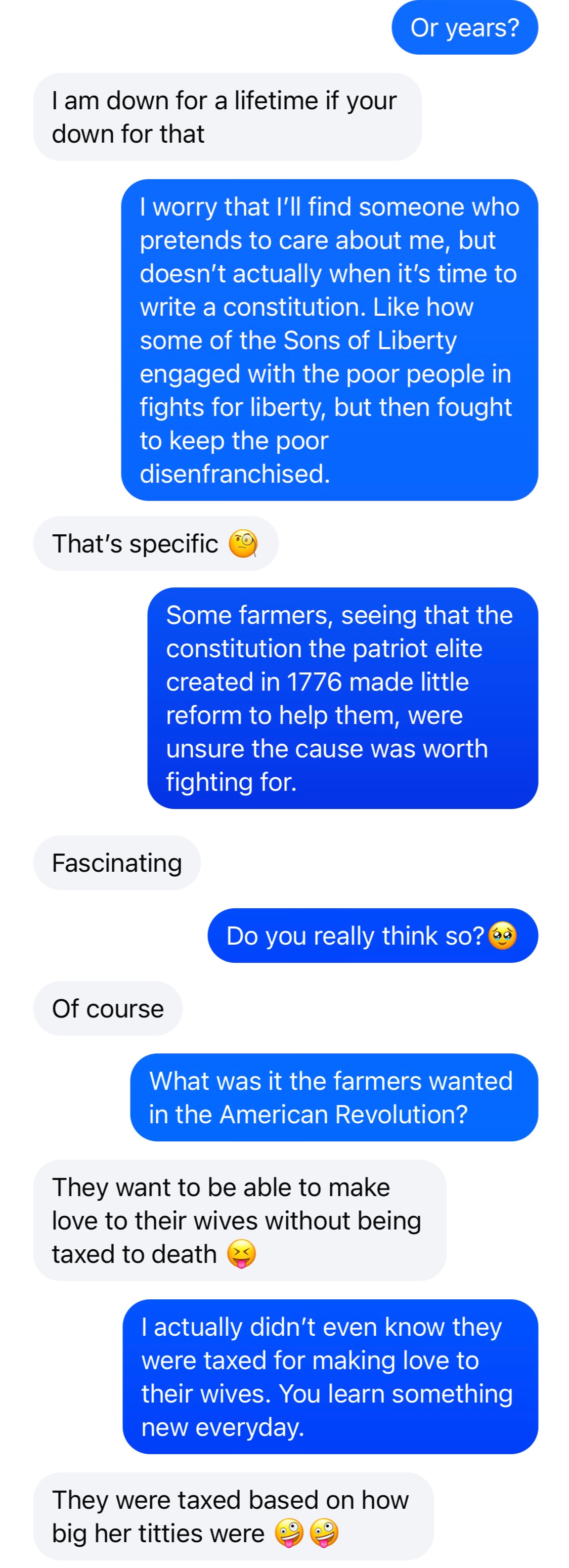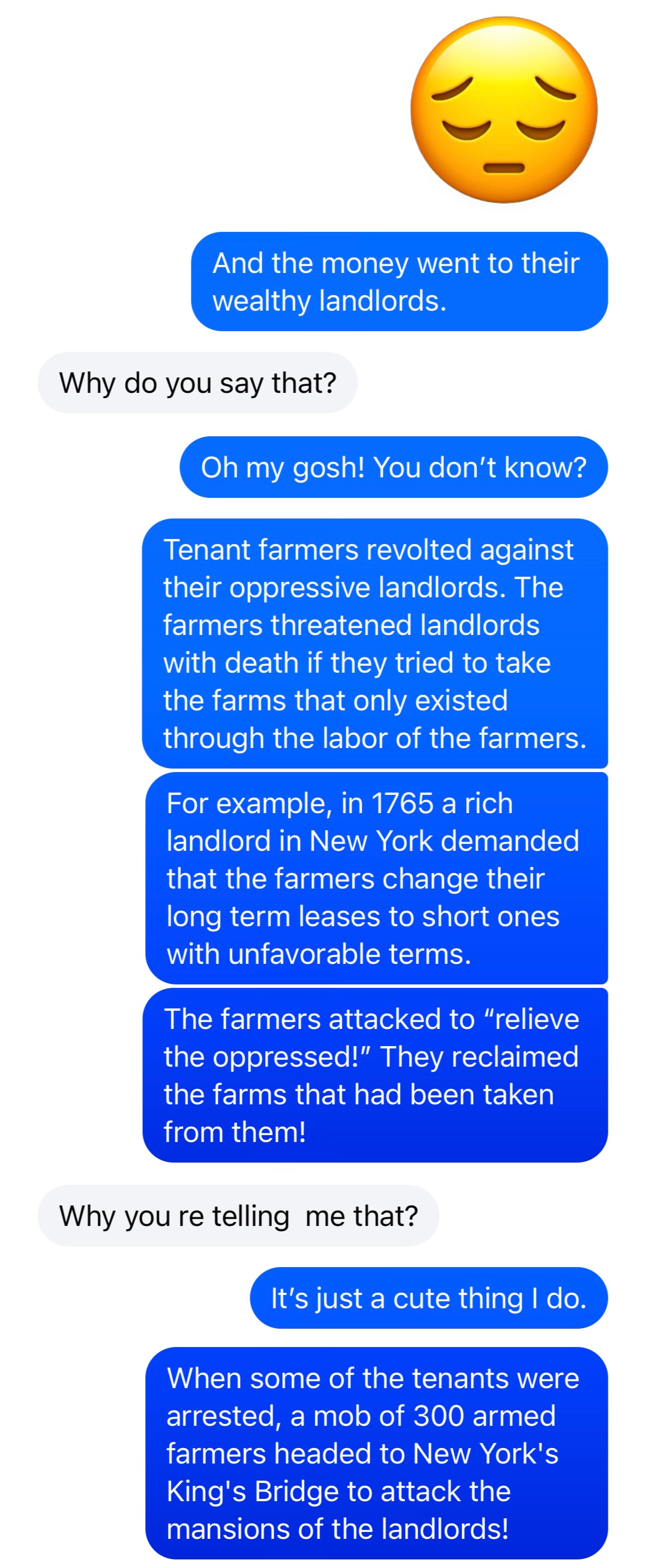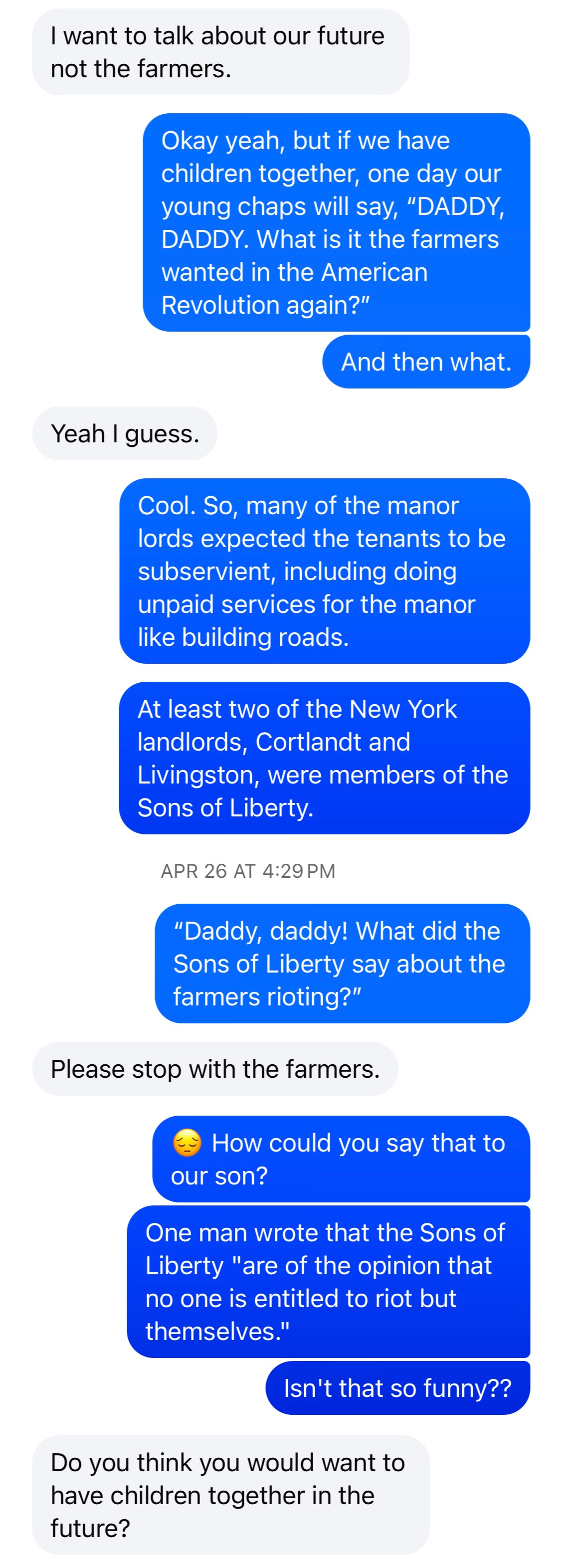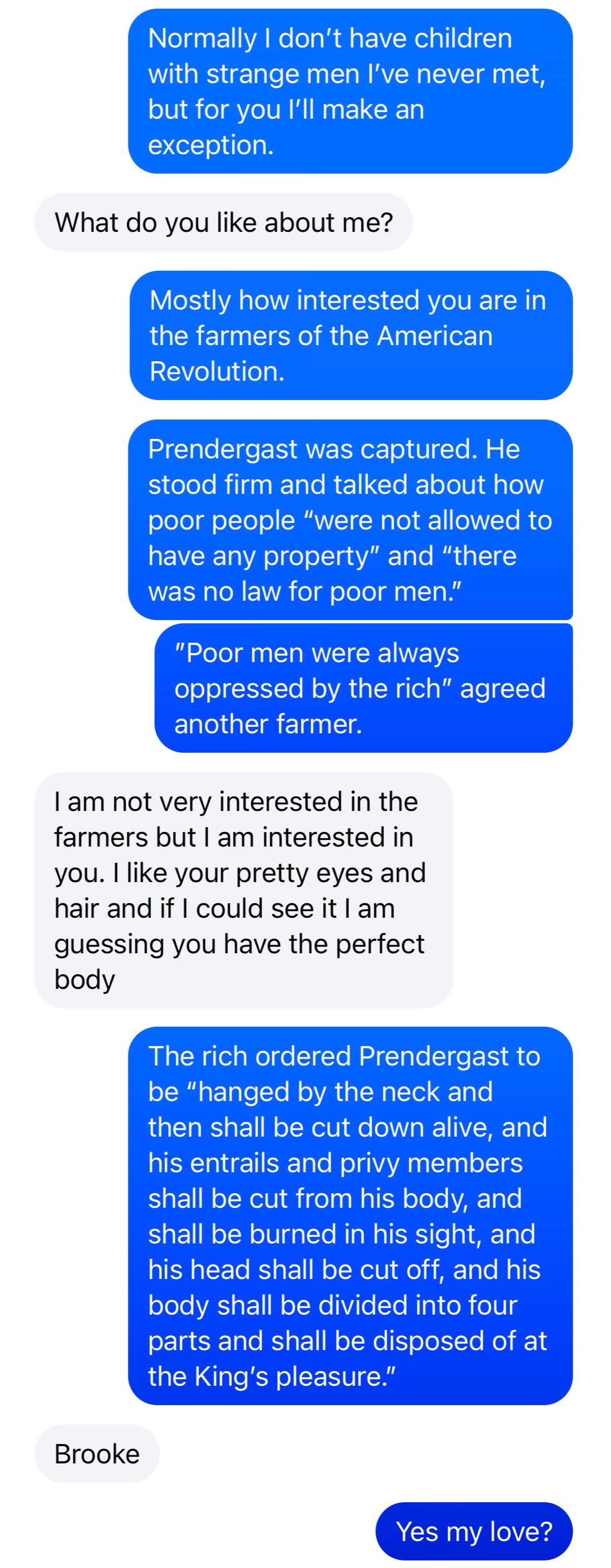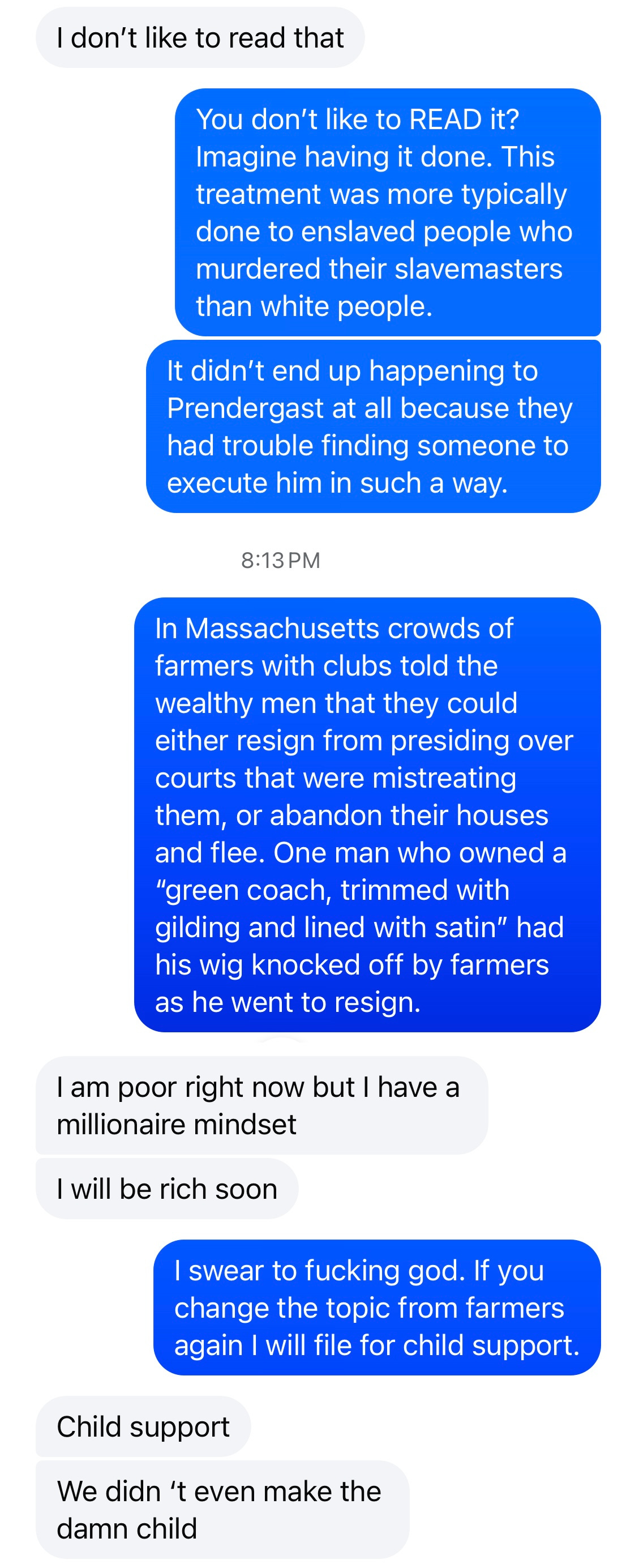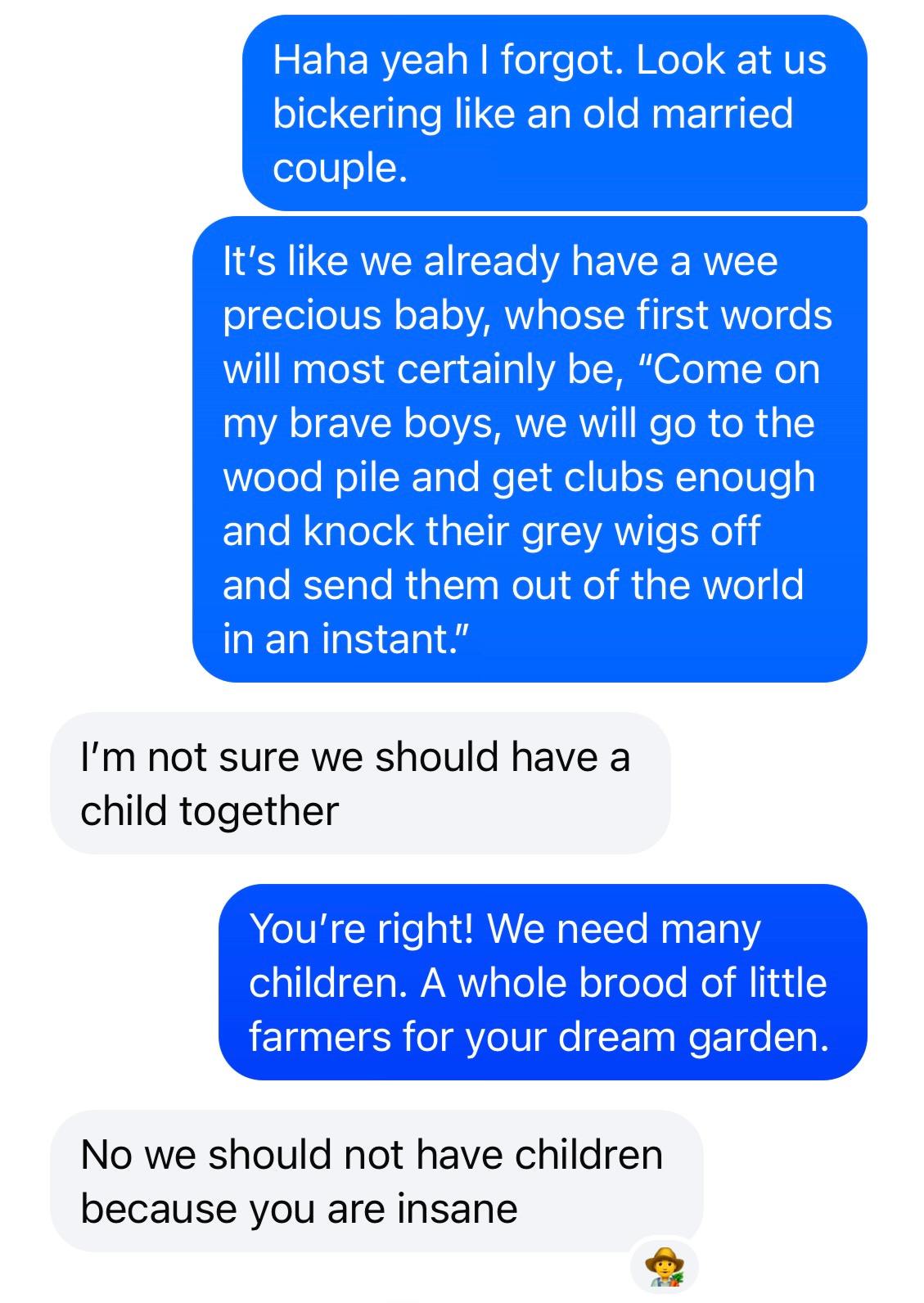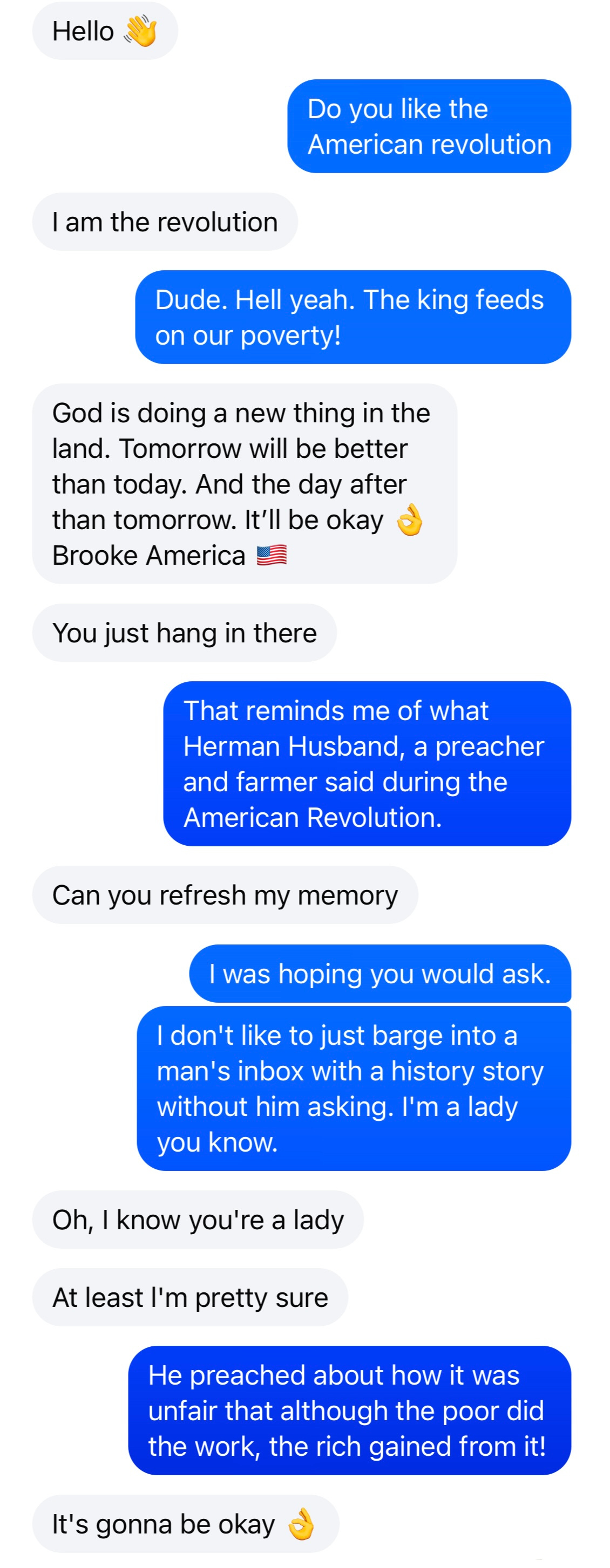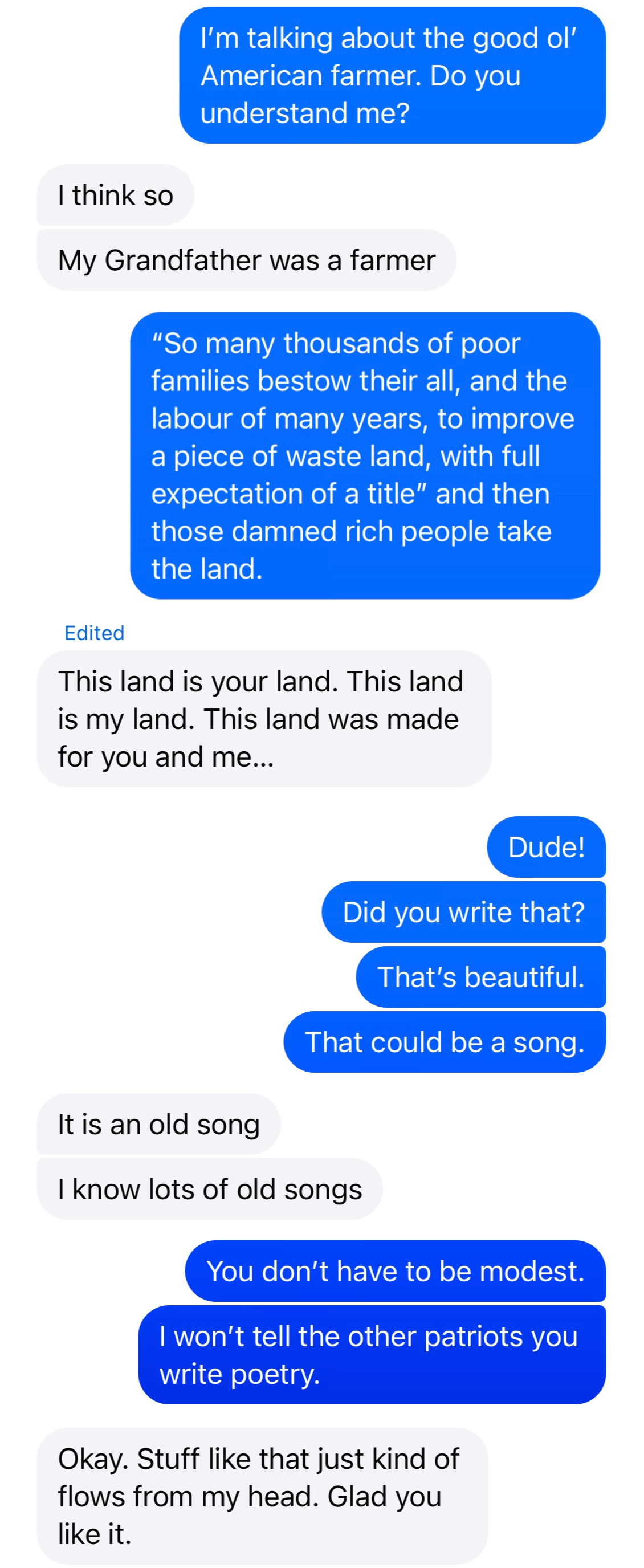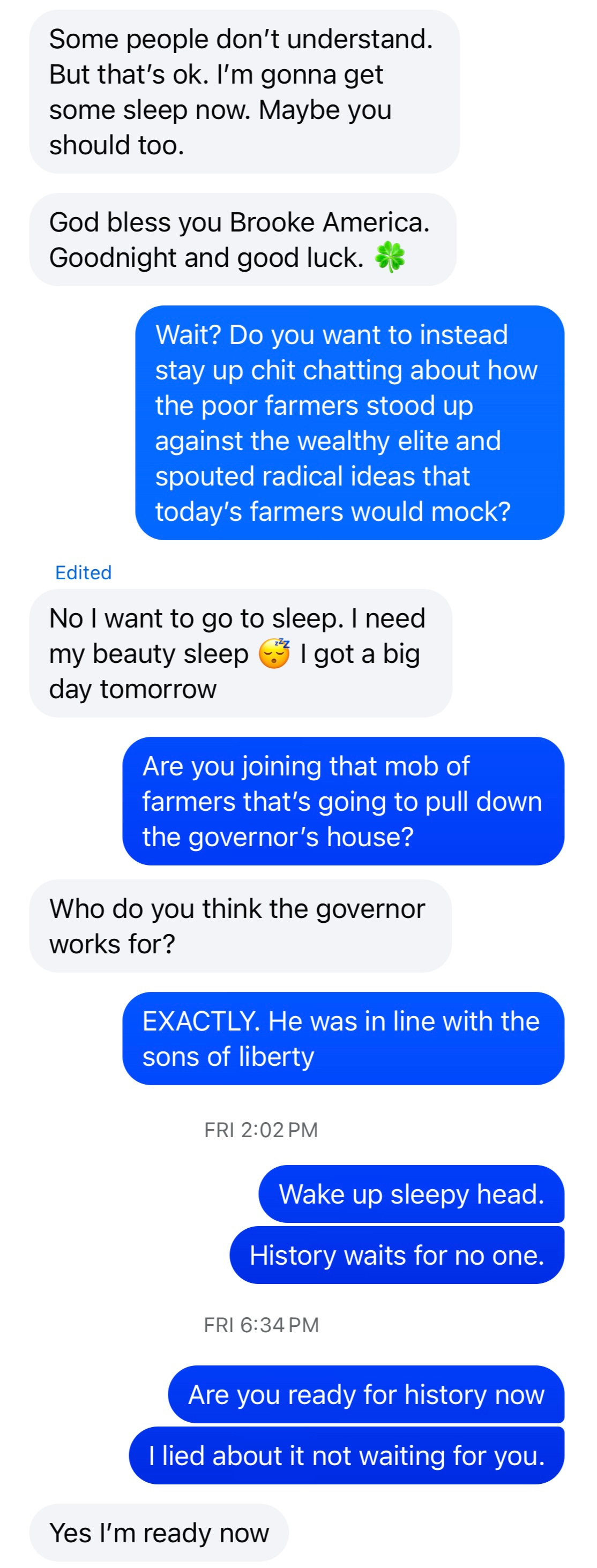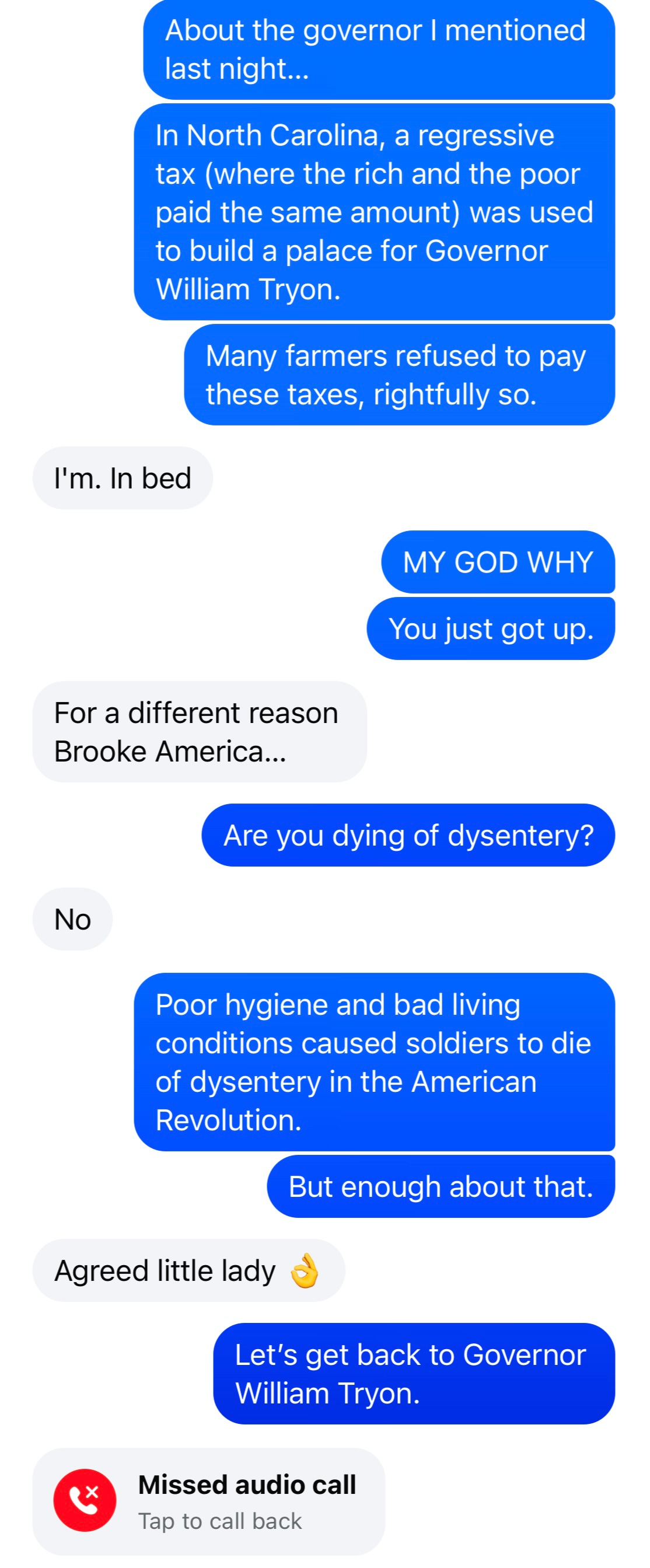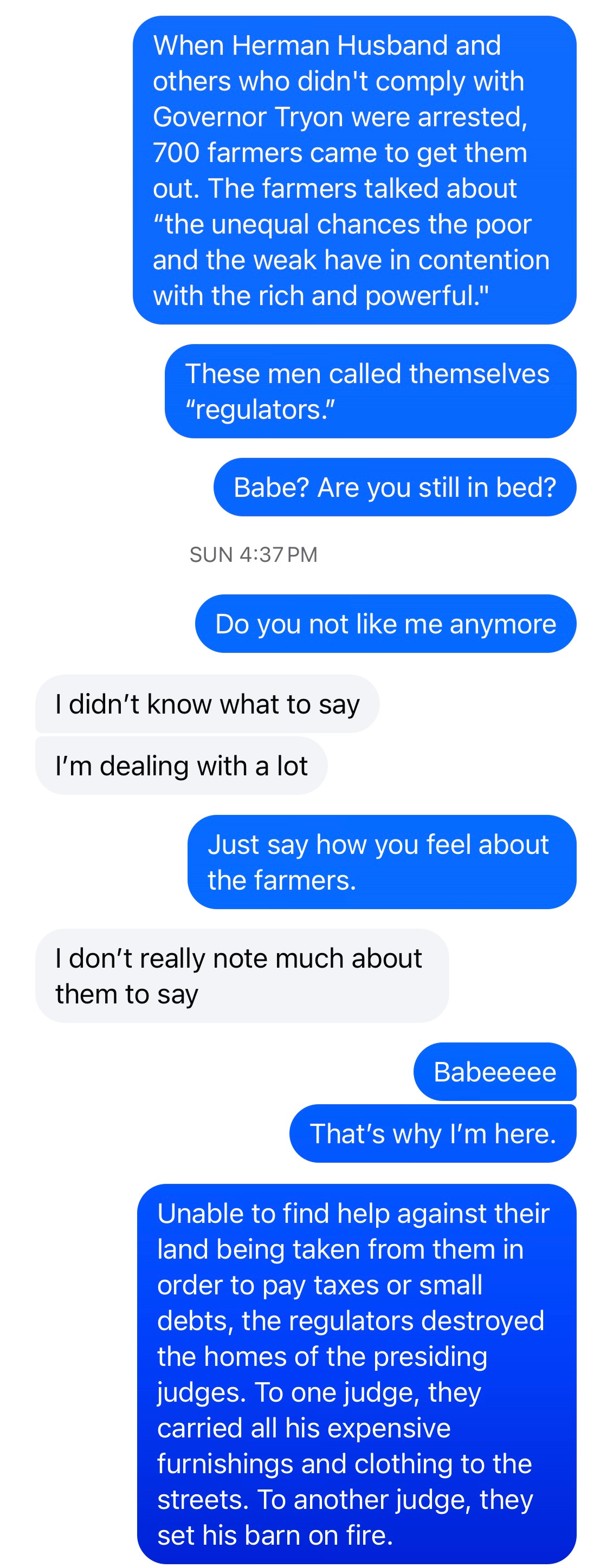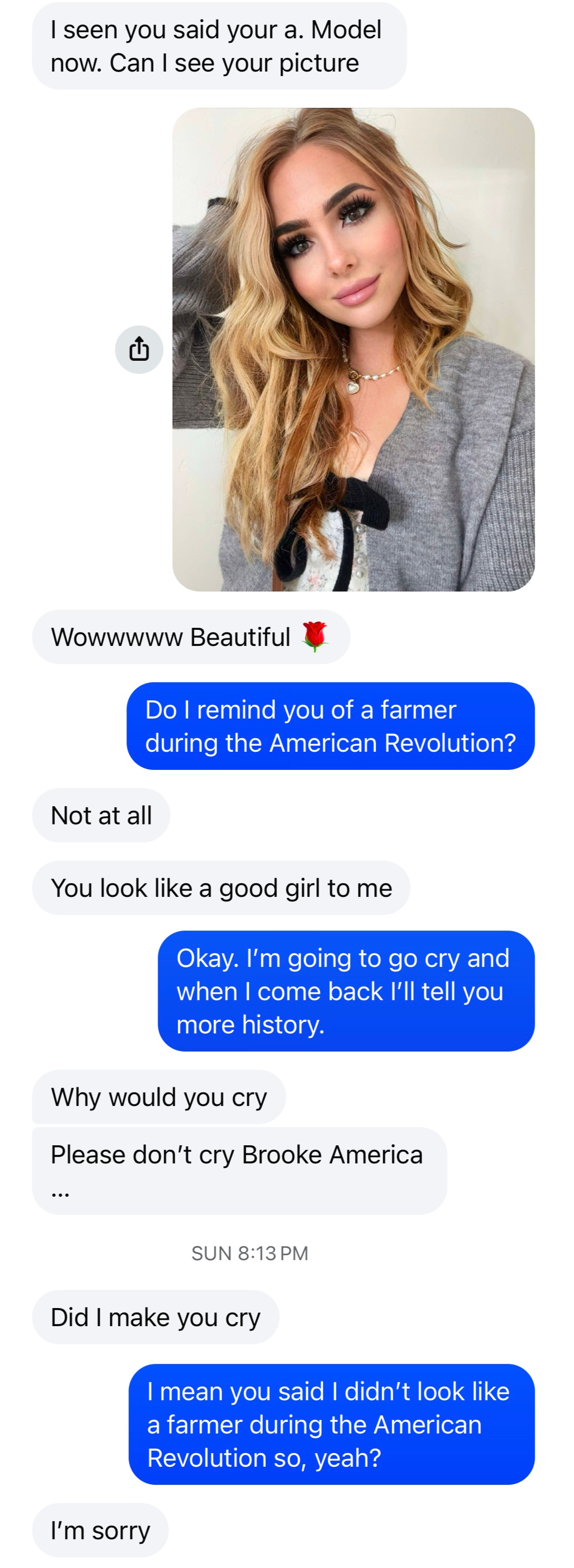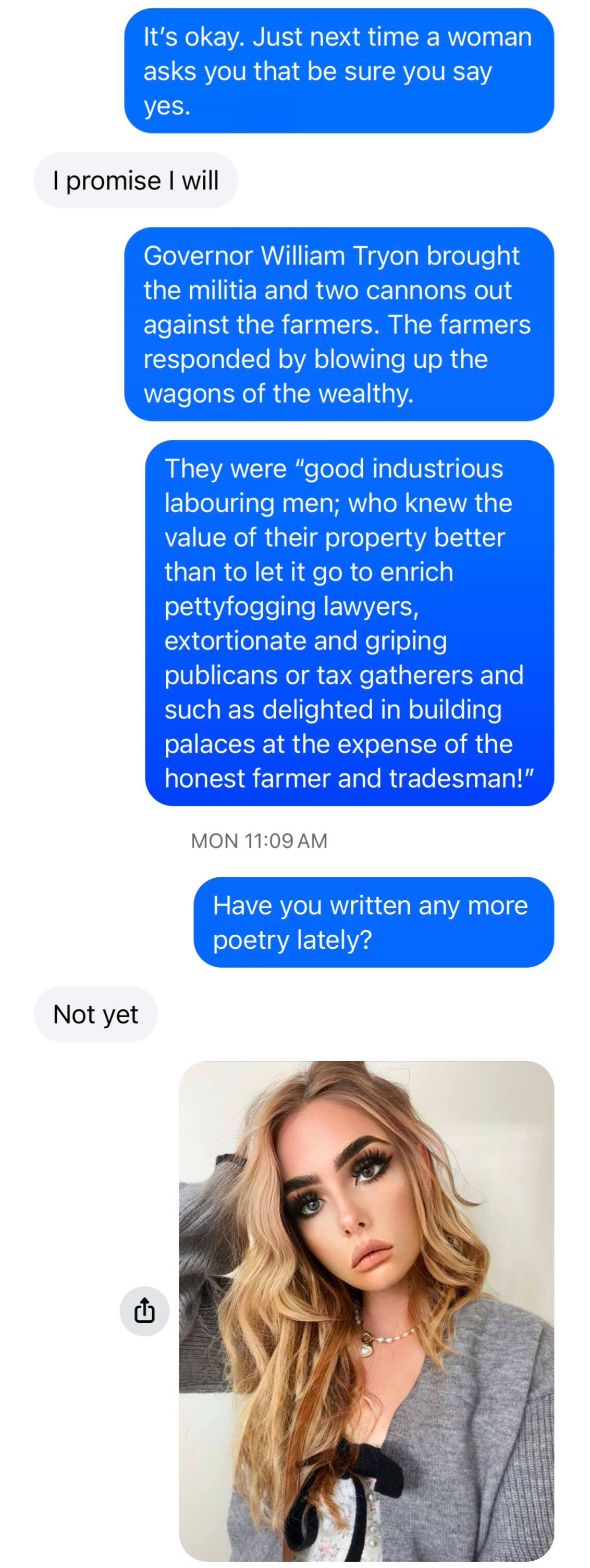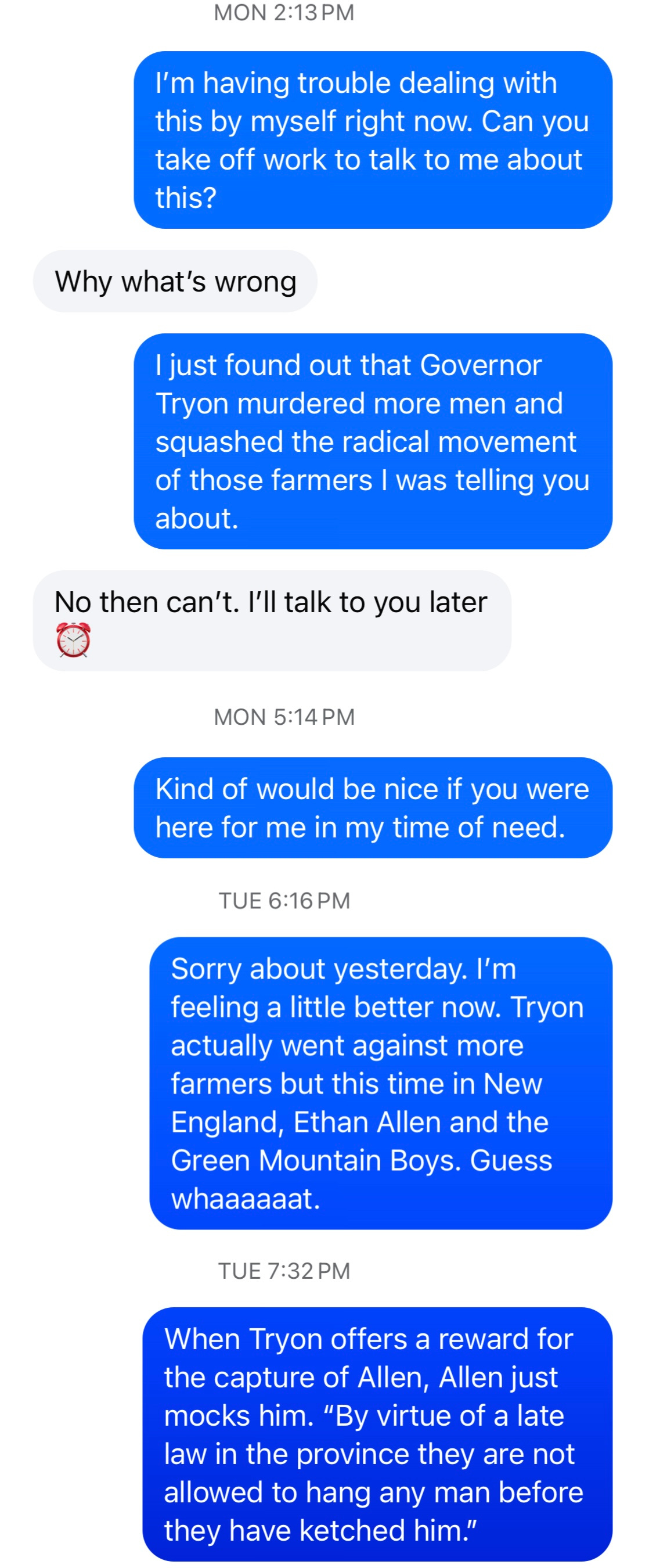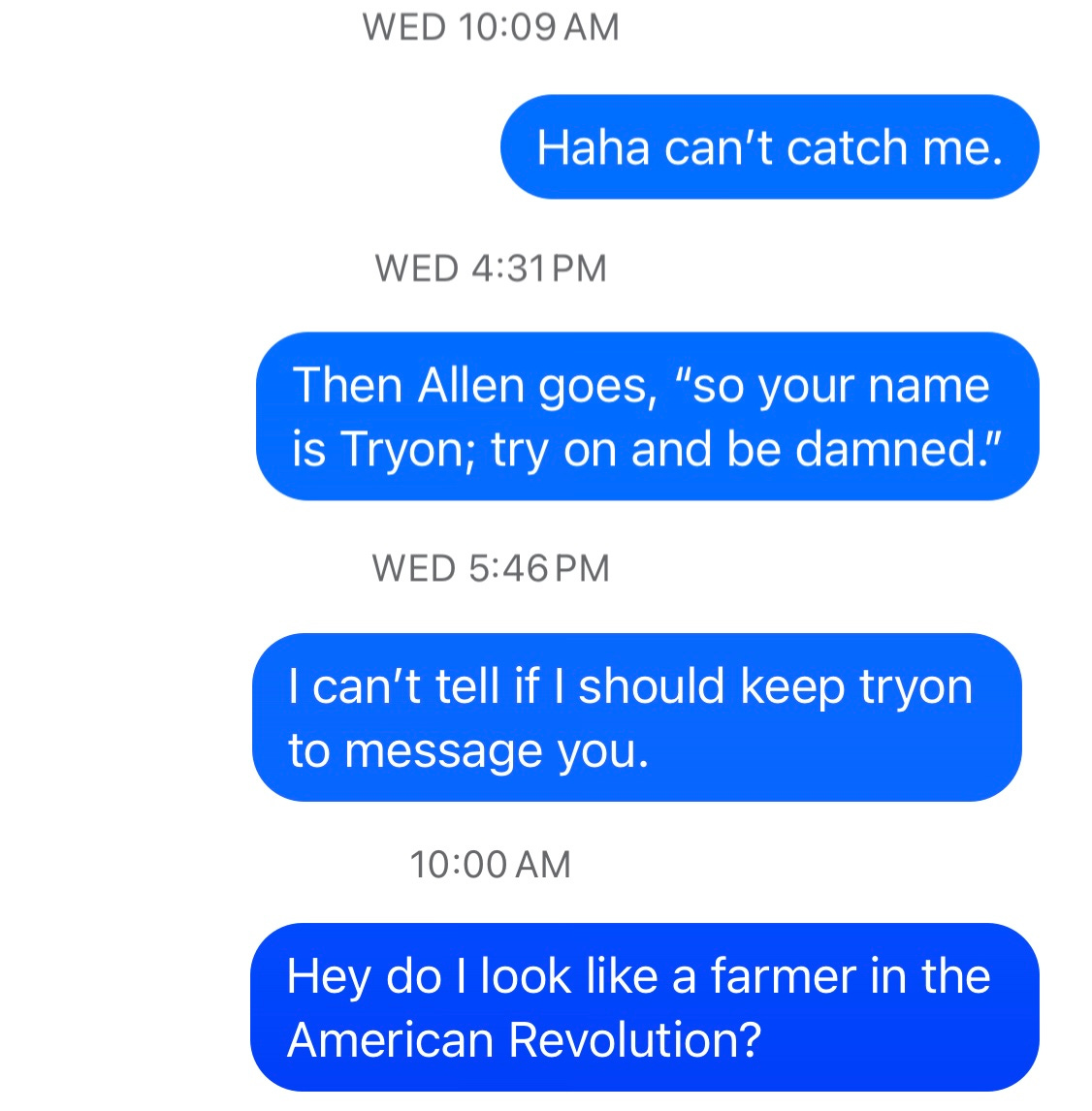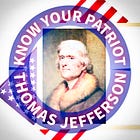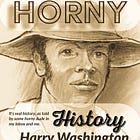The Luigis of the American Revolution: The Farmers
It’s real history, forcibly told to the right-wing men in my inbox
“Wealthy men make laws to protect their wealth, not to do justice to the poor.”
Herman Husband, farmer and preacher, 1770
“We will no longer be oppressed by those who enrich themselves at our expense.”
George Sims, farmer and teacher, 1765
I would appreciate if you heart reacted this post for me. More engagement means more people might see my work. ♥️
This post contains sensitive content on racism and violence. Reader discretion is advised.
Land disputes, high taxes and fees, and the corruption of courts favored the wealthy over poor farmers in 18th-century America. Unlike today, where many farmers I meet blindly repeat the words of their idol Trump, the farmers of the Revolutionary War era had inspiring rhetoric. Their actions, though violent, raged against the wealthy.
This post isn’t about the American Revolution against the British. It’s about the Luigis of the American Revolution.
Revolutionary War era farmers wanted an end to the oppression by the wealthy elite. Oppression from both Loyalists and Patriots alike. Their voices should have been heard. They were the masses; 19 out of every 20 white people lived in rural areas.
The farmers wanted control over local courts and a voice in their government. They saw how wealthy elected officials “highest study is the promotion of their wealth,” ignoring “the interest of the public.” They targeted their anger towards wealthy government officials, lawyers, speculators, landlords, and the corrupt sheriffs who enforced injustices. “Men whose interest it was to oppress, and make gain of the labourer,” they said.
A shortage of gold and silver, and a ban on paper money left many people struggling. Farmers wanted to be able to borrow money to improve their farms. They wanted land for their families. Many were tenant farmers, working under wealthy landlords. Some became tenant farmers from land disputes in which a wealthy person claimed the land the farmer had already been living on. Proprietors and farmers might both claim they had bought the same land, in some cases because of unclear state boundaries. Other poor farmers owned their land, but they were still oppressed by unfair taxation and treatment. These groups of farmers are the farmers of my story. I won’t be talking about the plantation owning farmers, like George Washington, Thomas Jefferson and James Madison, besides to mock them, but that portion of this story is for paid subscribers.
This post is free to read. Only the bonus story at the end is paywalled.
However, since I desperately need to entice you to subscribe to support me, I’m offering a coupon for a discount. If you sign up using this coupon, you will get 25% off for 12 months. Please consider becoming a paid subscriber if you value my work.
Prior to the American Revolutionary War, the farmers began their own wars against the rich. In 1745 farmers with “clubs, axes, and crow bars” marched to the jail to demand the release of a man imprisoned for cutting down trees on some of the land claimed by their rich, slave-owning governor. The farmers tore off the entire jail door to set him free. When more farmers were arrested for resisting, 300 farmers marched to the jail and freed them.
In 1766, 200 farmers took on an oppressive landlord when they “marched to murther[murder] the lord...and level his house.” Farmers repeatedly freed men arrested for uprising against the wealthy. In one story they arrested the corrupt sheriff instead and brought him to a different jail, after breaking out the people in custody.
The spirit was in farmers across colonial America…
Contestant A
(As a reminder I do not know these men. They are right-wing men messaging a satirical Facebook profile of me as a conservative.)
You can find the post on Guatemala that he mentioned here.
Groups of farmers pulling down the houses of the rich. One farmer said that if a rich proprietor caused more people to be jailed, “they wod go… and pull [his] House down about his Ears!” Speaking of Contestant A’s hatred of Marxism, a farmer even said he wanted members “of the same society to mutually assist each other according to their abilities.”
What happened to the farmers of today? Why can’t they have such inspiring rhetoric? I want to see farmers en masse giving speeches, calling the rich “moneyed parasites who did not live by their own labor,” and not just ramblings about Bill Gates. Not targeting only a few rich people they politically disagree with, and ignoring the mass corruption of the ones who have tricked them into thinking they care.
Contestant B (Daddy)
Alas. I will have to find another man to impregnate me. Unsurprisingly, that’s an extremely common offer these men like to make to women they have never met before.
Contestant C (The Poet)
Ethan Allen was part of the Green Mountain boys, who said their enemies were “a number of Attorneys and other gentlemen.” He and the others in his group had quite a few quotes worth reading. After burning a house, they exclaimed that “they had resolved to offer a burnt sacrifice to the Gods of the World.” Shouting, “Go now and complain to that damn scoundrel, your governor. God damn your governor, laws, king, council, and assembly.” Allen satirically declared a bounty for the capture of several wealthy men from New York.
Not all farmers. I tried to stay away from writing about the large planters and those who enslaved people in this story. Some I can’t be sure of their views, because as with most history of the poor, we simply do not know as much about them. Although I can’t talk about any colonist without talking about people who took land from Indigenous people, I did my best to pick people who aren’t recorded in history as being violent against the Indigenous.
Some groups of farmers more accurately depict farmers today. The Paxton Boys in particular. "We desire only that the savages who have stained our frontiers with blood be removed far from us... that we might live in peace and safety." The Paxton Boys were a group of white farmers who wanted the expulsion or the murder of all Indigenous people in Pennsylvania. “The Indians are all alike, treacherous, bloody-minded, cruel and inhuman.”
The Paxton Boys murdered any group of Indigenous people, even ones with peace treaties. The English and the Conestoga had a treaty about how they would be “forever hereafter be as one head and one heart, and live in true friendship and amity as one people.” The Paxton Boys killed the Conestoga and burned their village, leaving the peace treaty in the ashes.
This is a post about the Revolutionary War era, and I haven’t even mentioned actual battles. Poor farmers fought on the sides of both the Loyalists and Patriots. In some cases, they chose to fight on the opposite side of their landlords both because of the landlords mistreatment of them, and because they hoped to win and gain the land.
In the war, all poor people, including the farmers, were at a disadvantage to the wealthy Patriots. They died at the hands of the British troops during battle, enduring far greater bloodshed than the rich, who could send servants, or enslaved people in their place. The wealthy could afford to send substitutes to avoid enlistment. The poor had the opportunity to fight and die for the liberty the rich dreamed of.
They suffered. “We had nothing to eat for two or three days. . . Except that the trees of the fields and forests afforded us,” Joseph Martin, a poor farm laborer wrote of the conditions he endured in the Continental Army. Congress decided on a day of thanksgiving to honor the men. “Our country, ever mindful of its suffering army, opened her sympathizing heart so wide upon this occasion as to give us something to make the world stare. And what do you think it was, reader?”
“It gave each and every man half a gill of rice and a tablespoonful of vinegar!” Joseph went on to sarcastically call it an “extraordinary superabundant donation.” Wealthy Americans during this time still ate their meats, breads, fruits, vegetables, and dairy. They still drank their alcohol. Rice and vinegar for the poor.
The poor bled. “The greatest part were not only shirtless and barefoot but destitute of all other clothing, especially blankets. I procured a small piece of raw cowhide and made myself a pair of moccasin.” Other soldiers went barefoot “till they might be tracked by their blood upon the rough frozen ground.”
Conservative patriots, who wanted independence but not a change in the social hierarchy, tried to control the power of the common people, including the farmers. The wealthy should run the nation. Alexander Hamilton said the poor “seldom judge or determine right.” John Adams called the ideas of the radical political farmers and other working class people “ridiculous projects.”
Farmers felt that the new constitution did little for them. They said giving suffrage to only people with a certain amount of property “declares honest poverty a crime for which a large number of the true and faithful subjects of the state, who perhaps have fought and bled in their country’s cause, are deprived.” In some cases they talked about the struggles of more than just white people. A farmer asked why someone “born in Africa, India, or ancient America or even being much sunburnt” should be unable to vote. They complained of having fought for independence only to be given a “grievous and insupportable load of taxes” that profited the wealthy. “If the rich and powerful are suffered to prescribe [the law], and the poor and weak are obliged to submit, liberty is but a name”
Since the scarcity of money was more severe than before the revolution, farmers after the revolution found themselves trying to sell possessions and livestock to earn money to repay debts. Even at auction, many didn’t make enough to get out of debt. Landlords took advantage of this situation. Farmer William McKinney’s landlord “made a proposal before the public that he would buy all for me and return the goods [to me] which stopped the intended buyers from bidding.” The landlord lied. Instead he kept the cow and other possessions himself having now bought them for virtually nothing. In some cases of foreclosure, neighbors showed solidarity by refusing to bid on each others’ lost farm goods.
The revolution hadn’t saved the poor farmers who still had “no money in their hands” because it “got into the hands of a few fortunate individuals who have amassed great wealth.” Loyalist property that was confiscated wasn’t given to the poor soldiers, instead it benefitted the already wealthy. “Moneyed parasites who did not live by their own labor but, instead, preyed on the many who did.”
Not even Patriot farmers were given what they wanted. "We have made great sacrifices in the cause of liberty... and now find ourselves oppressed with taxes and lawsuits, deprived of that very liberty for which we fought and bled. They found their uprisings after the war suppressed by the elite men who had shouted “liberty.” In Shay’s Rebellion the farmers lamented, "we have been greatly imposed upon by persons holding places of honor and profit; they have become our oppressors rather than protectors."
How did we get from here to a mob attacking the Capital to keep a wealthy man in power?
The accumulation of enormous wealth… will necessarily produce a degree of influence and power, which cannot be entrusted in the hands of any set of men whatsoever without endangering the public safety.”
A farmer
The biggest threat to democracy is “enormous wealth, possessed by individuals”
William Findley, farmer and politician
Do you want to hear about more Luigis of the American Revolution, the urban people who also uprose against the wealthy? Let me know in the comments.
Paid subscribers have a bonus post below. Keep scrolling.
Sources:
The American Revolution Edward Countryman
The Unknown American Revolution: The Unruly Birth of Democracy and the Struggle to Create America Gary B. Nash
Herman Husband and "Some grievous oppressions"
Class conflict, slavery, and the United States Constitution : ten essays Staughton Lynd
George Sims' An Address to the People of Granville County
Debates and Proceedings of the General Assembly of Pennsylvania
Taming democracy : "the people," the founders, and the troubled ending of the American Revolution Terry Bouton
The American Revolution : explorations in the history of American radicalism
The American Revolution From the Bottom Up Jesse Lemisch
The American People and the American Revolution Merrill Jensen
You should also read:
The next conversation is a bonus for my paid subscribers. Please become one if you can. I currently have a discount for my Substack! If you sign up using this coupon, you will get 25% off, valid for 12 months. You can still subscribe at the regular rate if you want to pay me more, of course.
Can you afford to help me? If you truly can’t, I’ve got something for you too. Click here and fill out this form to be gifted a free “paid” subscription so that you can still read my bonus posts.
Keep reading with a 7-day free trial
Subscribe to Make America Learn History Again to keep reading this post and get 7 days of free access to the full post archives.

